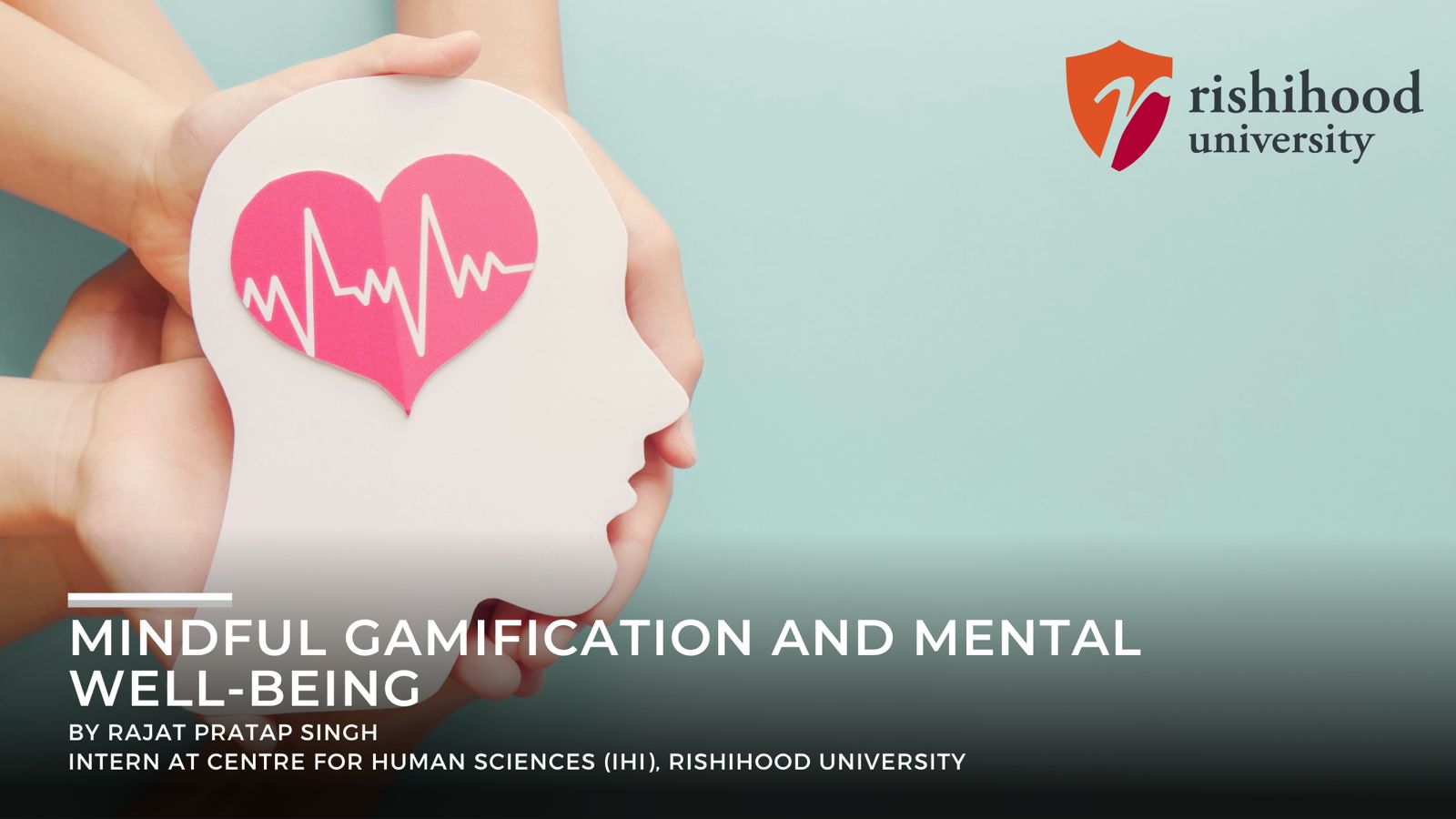I was fortunate to have participated in a recently conducted workshop on ‘Gamification’ conducted at Rishihood University by Aman Gopal, the visionary founder of Khol Khel. The session commenced with an anecdote shared by Mr. Gopal about his daughter’s interest in board games like Ludo. Concerned about the potential negative effects of such games on children’s mental and spiritual growth, and recognizing a lack of alternatives in the market, he delved into the realm of games. This marked the inception of Khol Khel in the early 2000s. Aman Gopal emphasized that a ‘Game’ is not a mere peripheral activity but significantly impacts mental well-being. His thought-provoking inquiries such as ‘where does ‘play’ transition into ‘sport’, and ‘are you playing the game or is the game playing you’, prompted profound contemplation on the pervasive yet incompletely comprehended phenomenon of gaming. He asserted that the Game itself influences us, shaping not only how we play but also instilling lasting habits and attitudes beyond the gaming experience.
Aman Gopal elucidated that game designers have a primary goal: to sell. Gamification theories underscore elements like heroism, rewards, acknowledgment, and hierarchy, which contribute to this process. Successful gamification involves embedding these aspects, exploiting human vulnerabilities such as desire, anger, attachment, greed, pride, and delusion. Games thus tap into fundamental aspects of human nature. Can we, based on these structures, create something novel that also enriches the social-emotional development of children? This question led Khol Khel to develop ‘Buddhi-Yoga’ – a board game that ingeniously incorporates the core mechanics of Snake and Ladder, albeit with distinctive modifications.
Buddhi-Yoga replaces conventional numerical blocks with content rooted in Indian tradition. Negative behaviors, attitudes, or thoughts lead to regression, while positive ones lead to progression. For instance, blocks symbolizing Avidya, Durbuddhi, and Adharma result in descending to Kama, Krodha, and Moha. Ladders are substituted by ropes, which elevate players from attributes like Daya or compassion to higher states such as Brahma-Loka or Gyana to Anand-Loka. Additionally, the blocks are organized as word-clouds, connecting each block with its relevant qualities. The primary aim of Buddha-Yoga, as emphasized by Aman Gopal, is to align players’ experiential selves with the ethical education imparted. While society advocates values like cooperation, traditional games often promote conflict and competition, exemplified by classics like Monopoly. Buddhi-Yoga endeavors to guide young minds towards ‘collaboration’. Drawing from the ancient Indian concept of Sarpa-Rajju, wherein darkness (ignorance) leads to mistaking a rope for a snake, the game underscores the importance of discernment in distinguishing right from wrong, highlighting the repercussions of poor choices. The Indian concepts of ‘papa-punya’ and ‘purushartha’ are also effectively embedded in the game. Good thoughts lead to good action, which in turn, evokes good thoughts. But the objective before the player is to transcend this realm of ‘papa-punya’ and go beyond, into ‘purushartha’ which comes in proximity of Vaikuntha-Loka.
The workshop featured an engaging activity, prompting participants to address four questions: Why do we play? Why do we learn? Why do we work? What guides our decision-making? Analysis of responses revealed predominantly individualistic and competitive perspectives. This underscores the relevance of Buddhi-Yoga. The workshop also witnessed insightful contributions from faculty and students, enriching the discussion. Sanjeev Ji, Dean of Rashtram School of Leadership, inquired about India’s frameworks for comprehending Gamification. In response, Aman Gopal referenced Someshwara’s Manasollasa, stating that the Game not only brings enjoyment to the player but also impacts the player in return. He drew parallels with the story of Hidimba, who taught her son Ghatotkacha life skills through animals who were treated as ‘gurus’. Aman Gopal also contrasted India’s historical approach of experimenting on humans before animals with the contemporary Western practice. Overall, the workshop provided a profoundly effective and thought-provoking experience, leaving participants not only well-informed about the realm of gaming but also prompting contemplation on deep philosophical inquiries about agency and free will.
From the very beginning of the workshop, I was drawn into a world of contemplation I hadn’t previously explored. The workshop opened my eyes to the idea that games are far more than mere entertainment; they are intricate tools that can shape our mental and emotional landscapes. Aman Gopal’s emphasis on the impact of games on mental well-being prompted me to consider the subtle ways in which various gaming experiences influence our thoughts, behaviors, and attitudes. This experience has ignited a curiosity in me to explore the deeper connections between seemingly unrelated domains and to approach education and personal development with a more holistic and integrated mindset.
– Rajat Pratap Singh, Intern at Centre for Human Sciences (IHI), Rishihood University

